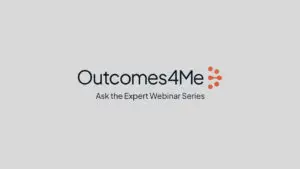Neither Outcomes4Me nor any participants in or contributors to any webinar, article or content endorses or recommends any products or services. Consult your physician regarding any treatment or therapy.
Is Soy Protein Safe For Breast Cancer Patients?
We recently hosted an exclusive webinar, “Navigating the Importance of Nutrition After a Cancer Diagnosis” with Rachel Beller, MS, RDN, an established registered dietitian, best-selling author, and founder of The Beller Nutritional Institute, specializing in oncology nutrition and weight management.
**Discussion summary below**
Debunking the Soy Myth: How Soy Benefits Hormone-Positive Cancer Patients
There’s often confusion about soy and its effect on hormone-positive cancers, especially breast and prostate cancers. However, research shows that soy consumption is not only safe but beneficial for cancer prevention and overall health.
Understanding Soy and Phytoestrogens
Soy contains phytoestrogens, plant-based compounds that interact with the estrogen receptors in our body. These receptors—alpha and beta—play different roles. Alpha receptors encourage cell growth, while beta receptors prevent it. Phytoestrogens, such as those found in soy, have a strong affinity for beta receptors, which helps inhibit cell multiplication and division, acting as a protective decoy against stronger estrogens that bind to alpha receptors.
Key Takeaways:
- Soy Protects, It Doesn’t Harm: Studies confirm that soy can reduce the risk of hormone-positive cancers by blocking stronger estrogens that stimulate cell growth.
- Soy vs. Animal Protein: Soy is often unfairly compared to animal-based proteins, yet it offers far more health benefits, such as antioxidants, fiber, and heart-healthy nutrients.
- Safe for Everyone: Even for estrogen receptor-negative cancer patients, soy’s rich profile of vitamins, minerals, and antioxidants makes it a healthy choice.
Incorporating soy, like edamame, tofu, or soy milk, into your daily diet can offer cancer-fighting benefits while improving overall wellness. It’s time to leave concerns about soy behind and embrace its positive role in your health journey.
Rachel has been featured on TV programs including The Biggest Loser, Good Morning America, The Dr. Oz Show, and more. In this discussion, Rachel shares the latest research on how nutrition can support your treatment outcomes, recovery, and overall health after a cancer diagnosis. She provides practical strategies for creating a balanced diet, explore advancements in oncology nutrition, and address common challenges that cancer patients face. Don’t miss this exciting opportunity to learn directly from a leading registered nutritionist.
